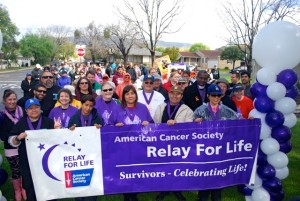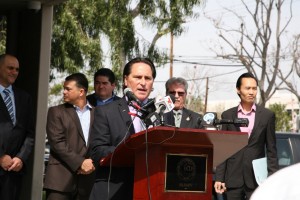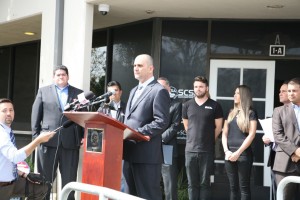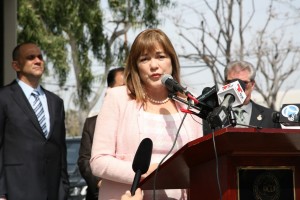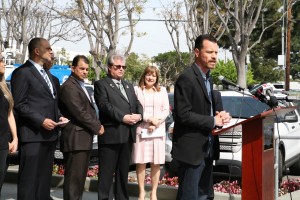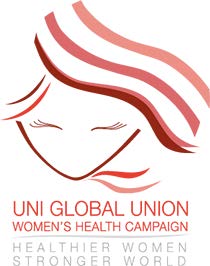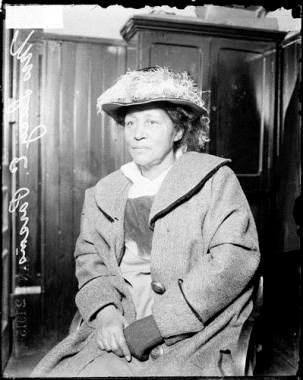April 5, 2016
One Thousand March Through South Los Angeles in Support of Respect and a Fair Union Contract for El Super Grocery Workers
—March coincides with El Super’s parent company -Grupo Comercial Chedraui- Board of Directors meeting in Mexico—
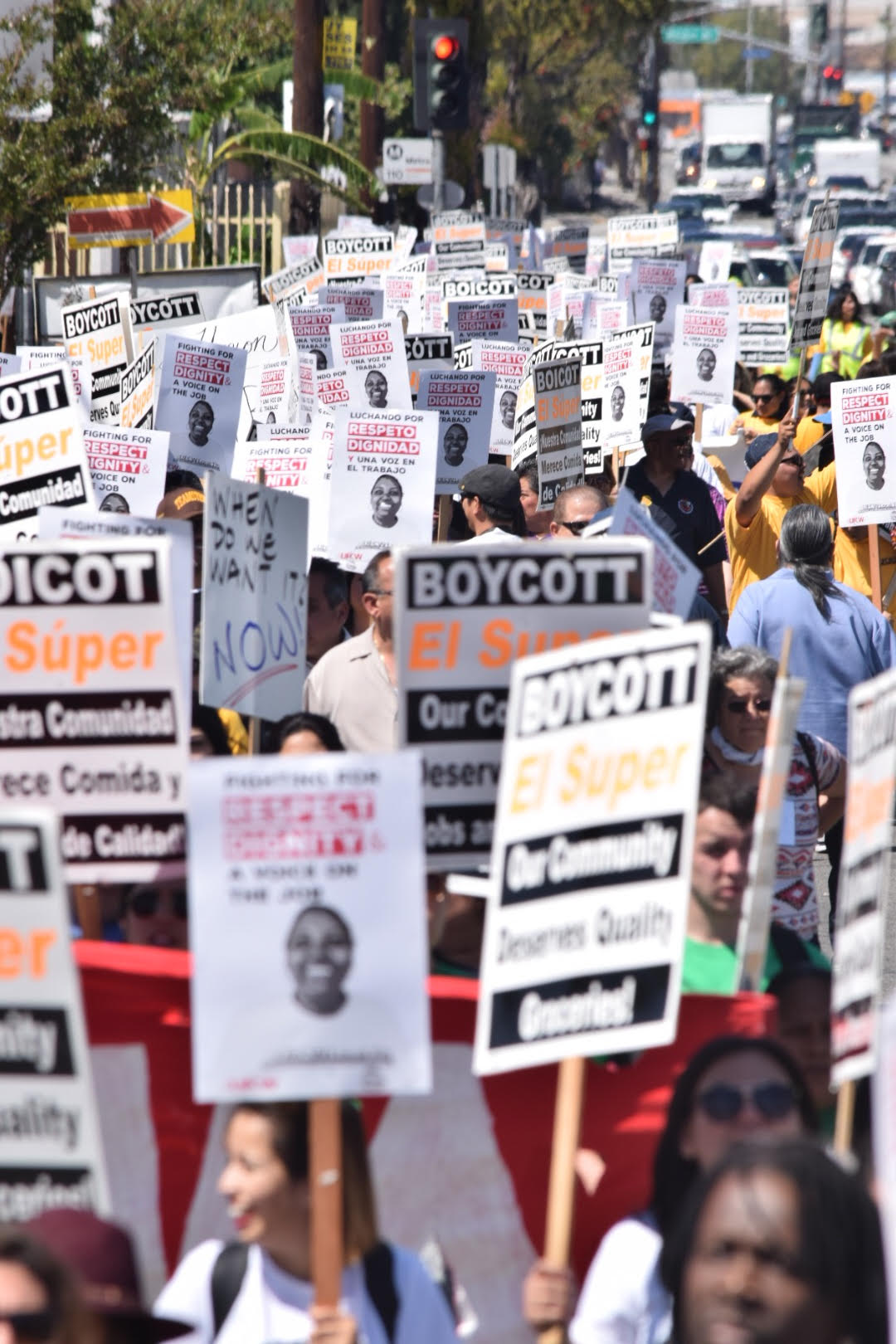 Los Angeles— On Monday, April 4, El Super grocery workers represented by the UFCW marched together with more than 1,000 supporters -through the streets of South Los Angeles- to demand respect and a fair contract. The march coincided with El Super’s parent company – Grupo Comercial Chedraui’s – Annual Meeting of its Board of Directors in Xalapa, Mexico.
Los Angeles— On Monday, April 4, El Super grocery workers represented by the UFCW marched together with more than 1,000 supporters -through the streets of South Los Angeles- to demand respect and a fair contract. The march coincided with El Super’s parent company – Grupo Comercial Chedraui’s – Annual Meeting of its Board of Directors in Xalapa, Mexico.
“We need a fair contract so we can take care of ourselves and our families,” said Lydia Flores, an El Super cashier. “Sometimes, my coworkers have to work two jobs to get by. I have a son who is ill. I can’t do that because I have to take care of him as well. We need fair pay and enough paid sick days so we can take care of our families” Flores said.
El Super union members have been fighting to win a fair contract since September 2013. El Super/ dba Bodega Latina is a Latino-focused grocery chain with 54 stores in the U.S. It is a subsidiary of Chedraui – Mexico’s third largest retailer.
“El Super needs to respect the will of its workers and negotiate a fair agreement that rewards our members for their hard work,” said Ricardo F. Icaza, President of UFCW Local 770.
In December of 2014 the unions commenced a national consumer boycott in protest of the Company’s unfair labor practices and treatment of its workers. The boycott has had a significant impact. It has reached over 2 million shoppers and contributed to negative same store sales at El Super markets during 2015 – its first annual negative same store sales since it began reporting financial results in 2010.
Huntington Park Mayor Graciela Ortiz voiced her support for El Super workers at a rally held outside an El Super store in Huntington Park. “Our community supported El Super workers when they called for a consumer boycott. Last April, the City of Huntington Park passed a resolution endorsing the El Super boycott. As residents and leaders in our community we will continue to hold companies responsible in providing adequate living wages to the workers that serve our community,” Mayor Graciela added.
El Super workers are asking to share in the company’s prosperity, which they helped create. Indeed, although Chedraui reported $4.5 billion in net sales in 2015, much of drawn from U.S. sales, it does not pay its workers a fair wage, offer affordable health insurance or provide sufficient hours to support a family. The El Super workers and their union, the UFCW, are seeking just that – fair pay, adequate paid sick days, stronger seniority protections, and a 40-hour guarantee for full-time workers.
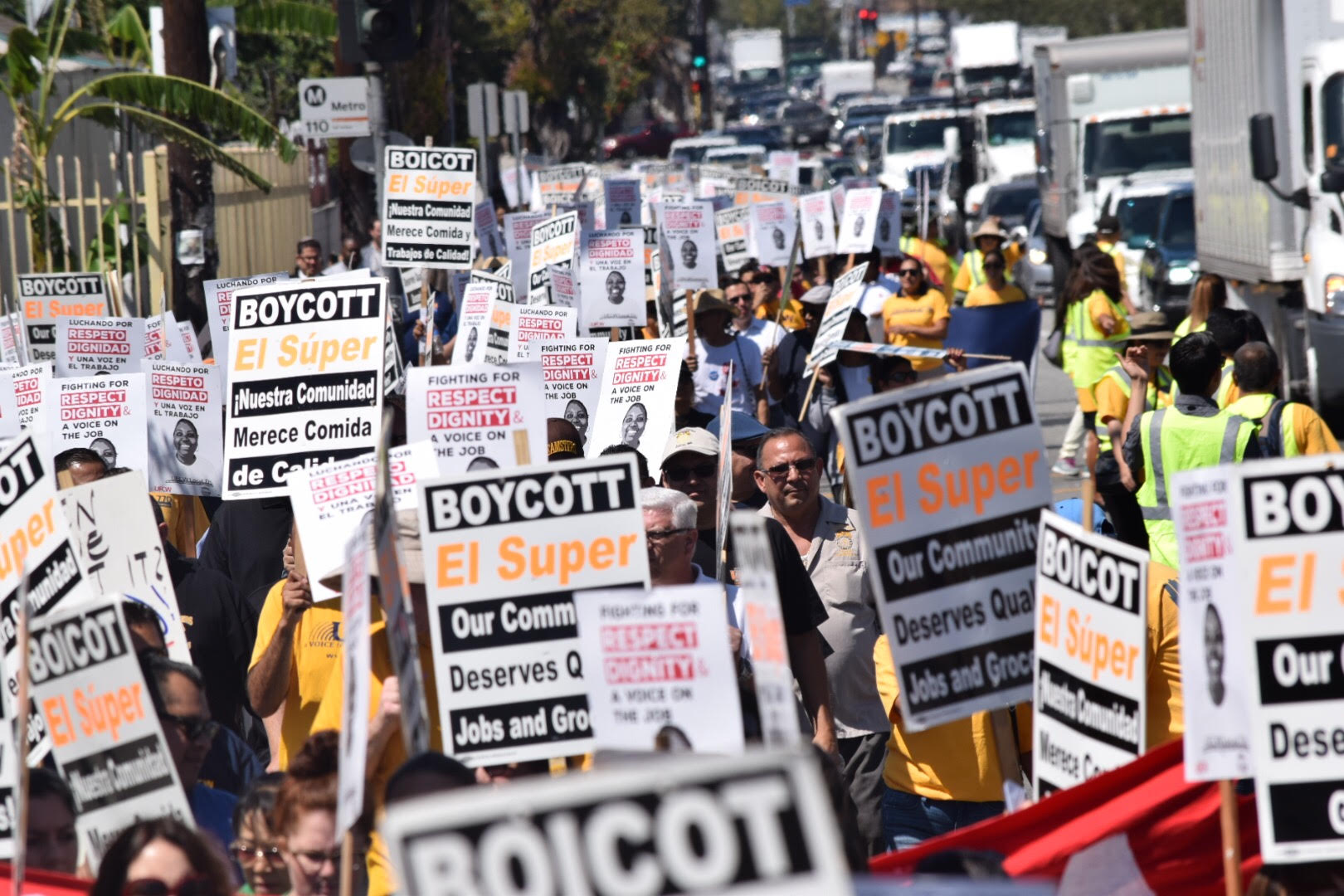
March 24, 2016
National Food Union & Food Companies Announce Major Donation to Help Feed Flint Families in Crisis
UFCW partners with Cargill, ConAgra Foods, Hormel Foods, JBS USA, Pinnacle Foods, Downs Food Group, Ryder Logistics for multi-ton donation of high-quality, high-protein food
FLINT, MICH. – In an effort to help Flint families dealing with an unprecedented water and economic crisis, the nation’s largest union for food workers, the United Food and Commercial Workers International Union (UFCW), has teamed up with some of America’s largest food manufacturers for a massive multi-ton donation of high-quality food to the Food Bank of Eastern Michigan in Flint, Michigan.
As part of this effort, some of America’s best-known food manufacturers and longtime UFCW partners, including Cargill, ConAgra Foods, Hormel Foods, JBS USA, Pinnacle Foods, Downs Food Group and Ryder Logistics have joined forces to bring relief to Flint families in need. Together they’ve donated more than 60 tons of beef, pork, poultry, canned meats, ready-to-eat soups and pastas, and peanut butter.
“The crisis imposed on Flint families is a historic failure. To do what is right for these good people we must act, and we must act together,” UFCW 876 President Roger Robinson said. “Today, UFCW and its employer partners have come together for this community, demonstrating our ability to unite in advocacy for the protections all families deserve; to be the voice of the worker that is too often ignored; and to provide the strength and support to navigate all workers to a better life.”
“We firmly believe that everyone has the right to enjoy safe and nutritious food,” said Jarrod Gillig, general manager of Cargill’s beef processing plant in Schuyler that is producing the beef for Cargill’s donation. “We know that protein, like ground beef, provides an array of essential nutrients to children and adults, and we believe it is important for us to provide some relief for a community in need of long-term support.”
“Our donation provides a variety of quality, protein-rich products for the people of Flint,” said Thomas L. Nuss, director of human resource operations at Hormel Foods. “We are proud to partner with the UFCW in this endeavor, and hope our effort will help those in need.”
“At JBS, we’re committed to giving back to the communities in which we live and work, and to helping when our neighbors are in need,” said Chris Gaddis, head of JBS USA human resources. “Families in Flint are experiencing extremely difficult times, and if we can help, we’re honored to offer our support to those families.”
Leading this effort to help feed Flint families in need are UFCW locals across the country, specifically members of UFCW Locals 38, (Milton, Pa.), 293 (Fremont, Neb.), 540 (Grapevine, Tex.), 617 (Fort Madison, Iowa), 1149 (Marshalltown, Iowa), 1161 (Worthington, Minn.) 1996 (Suwanee, Ga.), who have made or contributed food or transportation to this effort.
In addition, UFCW Locals 876 and 951, which represent workers in Flint and across Michigan, have been coordinating the UFCW’s ongoing efforts to serve their Flint members, their families and the broader Eastern Michigan community.
“We are committed to helping not only our members, but the entire community effected by the Flint water crisis,” John Cakmakci, UFCW 951 president, said. “To date, we have raised over $100,000 to provide quality food and water to Flint residents. Next week, we will be hosting the first of many food and water give-aways for the nearly 500 UFCW 951 members and retirees living through this horrible situation.”
Additionally, Local 876 has contributed more than $14,000 as part of their on-going local relief efforts.
“Good, nutritious food is key to the Flint community’s recovery, and we can’t thank this incredible team enough for what they have done for Flint families and children” said Kara Ross, Vice President of the Food Bank of Eastern Michigan.
Background Statistics:
More than 125,000 pounds of food from eight companies in eight states and nine UFCW locals
Products included are: Fresh beef, ground beef, pork, poultry, peanut butter, canned chicken, Chef Boyardee, Hormel chili, Dinty Moore Compleats beef stew, Peter Pan peanut butter, Skippy peanut butter singles, and Vienna Sausages
March 23, 2016
Main & Vine Workers Join Local 367
Nearly 150 brothers and sisters at Main & Vine in Gig Harbor, Washington, were granted recognition to be represented by Local 367.
Main & Vine is a new store concept from Kroger that focuses on fresh local produce and high quality prepared foods. The Gig Harbor Main & Vine is the first shop that Kroger has opened under this new brand.
Their contract vote was held on March 17, and passed by an overwhelming majority.
Becoming a part of UFCW Local 367 was exciting to everyone who works at Main & Vine because it meant an instant improvement in both wages and benefits. As Kroger opens more Main & Vine stores throughout the country, this effort by Local 367 will help to reinforce the message that being a part of the UFCW union family really does lead to a better life.
March 22, 2016
Local 1428 Hosts First ‘Labor United Against Cancer’ Event
On March 9, UFCW Local 1428, in partnership with the American Cancer Society, hosted the first annual Labor United Against Cancer Run/Walk and Wellness Fair in San Dimas, California. Over 175 people attended the event to stand united in the fight against cancer, including members of the community, and labor and elected officials. In addition to Local 1428, members of UNAC, USW, Teamsters 396, Teamsters 630, Laborers 300, HERE 11, IUPAT DC36, Firefighters Local 1014, and SEIU 2015 were there to support a worthy cause.
Over $15,000 was raised from the event and donated to the American Cancer Society, and members of Local 1428 will continue to support the American Cancer Society with the end goal of finding a cure for this horrible and devastating disease.
“When labor unites, labor wins and with this event we are showing that labor is united in the fight to defeat cancer,” said UFCW Local 1428 President Mark Ramos.
March 18, 2016
Women’s History Month: UFCW Celebrates the Life of Addie Wyatt
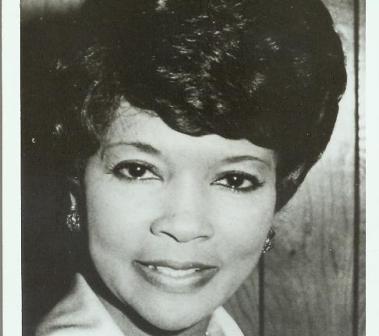 Women’s History Month gives us an opportunity to pay tribute to Addie Wyatt, who fought for workers’ rights during the height of the American Feminist Movement and changed the face of organized labor.
Women’s History Month gives us an opportunity to pay tribute to Addie Wyatt, who fought for workers’ rights during the height of the American Feminist Movement and changed the face of organized labor.
Addie Loraine Cameron, better known as Addie L. Wyatt (1924 –2012), was born in Mississippi and moved to Chicago with her family in 1930. When she was 17 years old, she married Claude S. Wyatt, Jr.
She began working in the meatpacking industry in 1941. Although she applied for a job as a typist for Armour and Company, African American women were barred from holding clerical positions and she was sent to the canning department to pack stew in cans for the army. Due to a contract between Armour and the United Packinghouse Workers of America (UPWA), she earned more working on the packinghouse floor canning stew than she would have made working as a typist, and joined the UPWA after learning that the union did not discriminate against its members.
In 1953, she was elected vice president of UPWA Local 56. In 1954, she became the first woman president of the local, and was soon tapped to serve as an international representative. She held this position through the 1968 merger of UPWA and the Amalgamated Meat Cutters and Butcher Workmen until 1974, when she became director of the newly formed Women’s Affairs Department. In 1970s, she became the first female international vice president in the history of the Amalgamated Meat Cutters and Butcher Workmen and later served as director of its Human Rights and Women’s Affairs and Civil Rights Departments. She served as the first female African American international vice president of the UFCW after Amalgamated and the Retail Clerks International Union merged in 1979.
She and her husband were ordained ministers and founded the Vernon Park Church of God in Chicago. She played an integral role in the civil rights movement, and joined Dr. Martin Luther King, Jr. in major civil rights marches, including the March on Washington, the march from Selma to Montgomery, Alabama, and the demonstration in Chicago. She was one of the founders of the Coalition of Labor Union Women, the country’s only national organization for union women. She was also a founding member of the Coalition of Black Trade Unionists and the National Organization of Women.
In 1984, Addie Wyatt retired from the labor movement as one of its highest ranked and most prominent African American and female officials. In honor of her work, she was named one of Time magazine′s Women of the Year in 1975, and one of Ebony magazine′s 100 most influential black Americans from 1980 to 1984. The Coalition of Black Trade Unionists established the Addie L. Wyatt Award in 1987. She was inducted into the Department of Labor’s Hall of Honor in 2012.
March 15, 2016
Cannabis Workers in Santa Ana Join Local 324
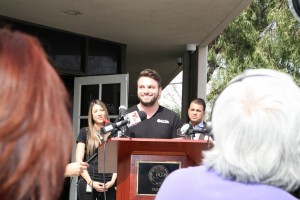 Workers at South Coast Safe Access in Santa Ana, California, recently ratified their first contract and joined UFCW Local 324. These 20 workers are the first Orange County cannabis workers to form a union, and are helping set higher standards for the California cannabis industry.
Workers at South Coast Safe Access in Santa Ana, California, recently ratified their first contract and joined UFCW Local 324. These 20 workers are the first Orange County cannabis workers to form a union, and are helping set higher standards for the California cannabis industry.
“South Coast Safe Access is a model for what can be achieved when a business owner has a sincere desire to do right by his employees and the community where he does business,” said UFCW Local 324 President Greg Conger.
The workers announced their decision at a press conference attended by Representative Loretta Sanchez (D-Santa Ana). “It’s time for public policy that will allow safe access for medical marijuana patients while protecting our neighborhoods,” said Sanchez. “Let’s protect workers and consumers in an industry that will continue to grow and become a larger part of California’s economy and prosperity.”
“If anybody working in a cannabis dispensary anywhere in the state believes he or she will get a fraction of that without a union, they have to be smoking something a lot stronger than pot,” said Conger, describing the newly union members as a “natural fit” for Local 324’s strong history of improving lives for both retail and healthcare workers.
March 8, 2016
UNI Global Union Launches New Campaign on International Women’s Day
Today is International Women’s Day, a time to celebrate the social, economic, cultural and political achievements of women. In the spirit of this year’s International Women’s Day theme, “Pledge for Parity,” UNI Global Union is launching a new Equal Opportunities Campaign on Women’s Health.
The purpose of the campaign is to raise awareness on issues that affect women’s health, including cancer, HIV/AIDS, maternal and reproductive health and mental illnesses. In spite of the advances in healthcare that have been made over the last few decades, gender roles continue to place women at a disadvantage. Since women represent half of the world’s population, the well-being of women will have a direct impact on our families, communities and quality of life. For more information about the campaign, visit http://en.uni-womens-health.org/.
March 5, 2016
March is Women’s History Month! Here’s your Women in Labor History Primer
Similar to Black History, Women’s History Month is celebrated in order to promote the significant contributions women have made to the labor movement and beyond, that are often left out of the history lessons taught in our classrooms or promoted in society.
The following women are just some of the major players who have had a major role in the fight for equal rights, who made (and are still making) history by exposing horrible labor conditions and acted to change them, and inspired a generation of activists and leaders today. But before you take a look, we know that all the women in our union family are making a difference today too, and we want to share your stories. Tell us about your union story here, and we might feature it on our blog!
*the following is adapted from the Zinn Education Project*
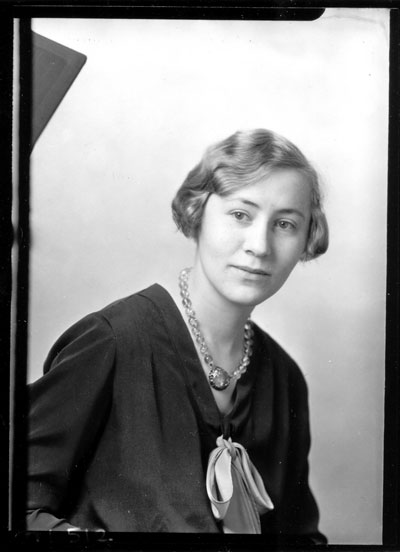 Louise Boyle
Louise Boyle
Photographer Louise Boyle is best known for the images she captured, documenting the devastating effects of the Great Depression on American workers. In 1937, at the height of a wave of labor militancy, Ms. Boyle was invited to photograph the living and working conditions of the Southern Tenant Farmers’ Union members from several Arkansas communities. Her provocative recording depicted courageous people linking their futures together despite devastating poverty, physical hardship, and brutal police-endorsed reprisals. Most portray African American farmers in their homes, at union meetings and rallies, or at work with their families picking cotton. Boyle returned in 1982 to rephotograph some of the people and places she had documented earlier.
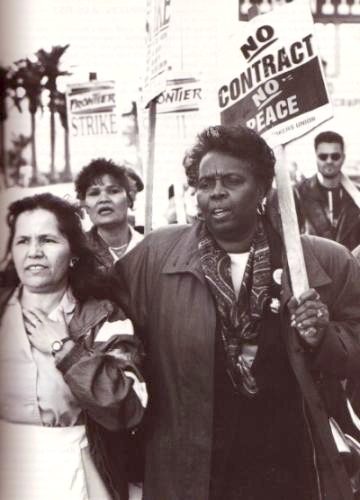 Hattie Canty
Hattie Canty
A Las Vegas transplant in rural Alabama, legendary African American unionist Hattie Canty was one of the greatest strike leaders in U.S. history. Her patient leadership helped knit together a labor union made up of members from 84 nations. During her time as an activist, she saw first hand how the labor and civil rights movements were intrinsically linked: “Coming from Alabama, this seemed like the civil rights struggle…the labor movement and the civil rights movement, you cannot separate the two of them.”
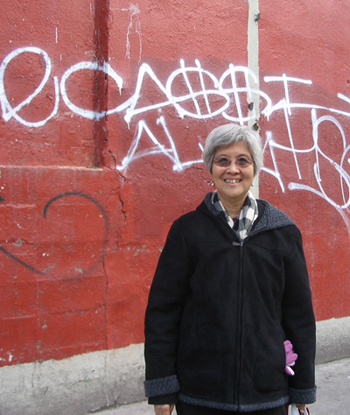 May Chen
May Chen
In 1982, May Chen helped organize and lead the New York Chinatown strike of 1982, one of the largest Asian American worker strikes with about 20,000 garment factory workers marching the streets of Lower Manhattan demanding work contracts. “The Chinatown community then had more and more small garment factories,” she recalled. “And the Chinese employers thought they could play on ethnic loyalties to get the workers to turn away from the union. They were very, very badly mistaken.” Most of the protests included demands for higher wages, improved working conditions and for management to observe the Confucian principles of fairness and respect. By many accounts, the workers won. The strike caused the employers to hold back on wage cuts and withdraw their demand that workers give up their holidays and some benefits. It paved the way for better working conditions such as hiring bilingual staff to interpret for workers and management, initiation of English-language classes and van services for workers.
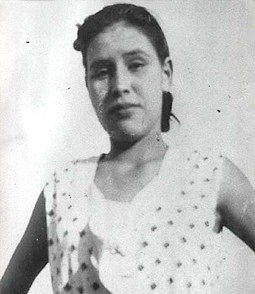 Jessie de la Cruz
Jessie de la Cruz
A field worker since the age of five, Jessie knew poverty, harsh working conditions, and the exploitation of Mexicans and all poor people. Her response was to take a stand. She joined the United Farm Workers union in 1965 and, at Cesar Chavez’s request, became its first woman recruiter. She also participated in strikes, helped ban the crippling short-handle hoe, became a delegate to the Democratic National Convention, testified before the Senate, and met with the Pope. She continued to be a political activist until her death in 2013, at the age of 93.
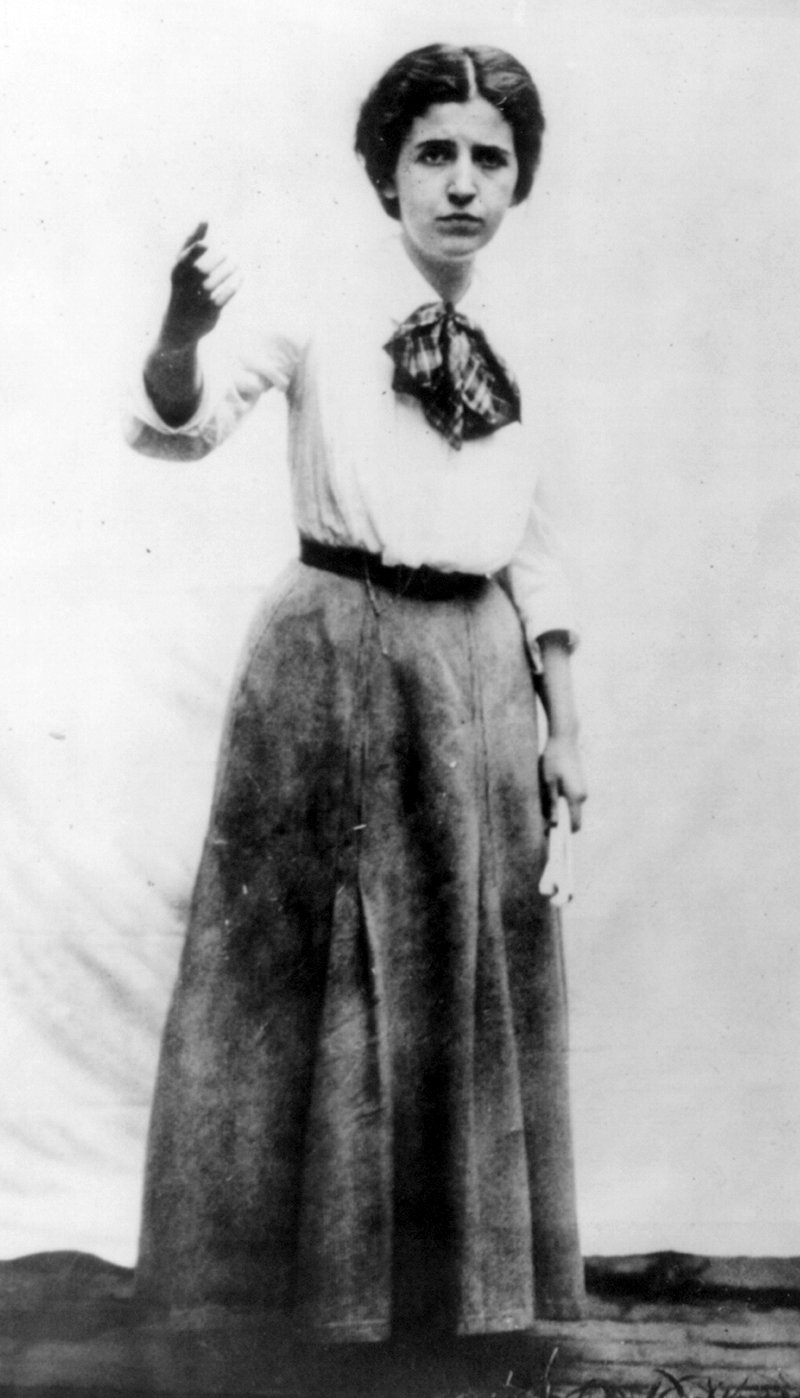 Elizabeth Gurley Flynn
Elizabeth Gurley Flynn
Elizabeth Gurley Flynn once said, “I will devote my life to the wage earner. My sole aim in life is to do all in my power to right the wrongs and lighten the burdens of the laboring class.” In 1907, Elizabeth Gurley Flynn became a full-time organizer for the Industrial Workers of the World and in 1912 traveled to Lawrence, MA during the Great Textile Strike. She became “the strike’s leading lady.”
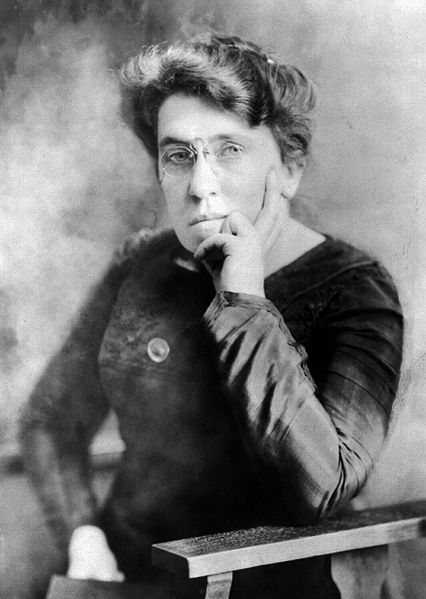 Emma Goldman
Emma Goldman
In 1886, year after her arrival from Lithuania, Emma Goldman was shocked by the trial, conviction, and execution of labor activists falsely accused of a bombing in Chicago’s Haymarket Square, which she later described as “the events that had inspired my spiritual birth and growth.” A born propagandist and organizer, Emma Goldman championed women’s equality, free love, workers’ rights, free universal education regardless of race or gender, and anarchism. For more than thirty years, she defined the limits of dissent and free speech in Progressive Era America. Goldman died on May 14, 1940, and buried in Forest Park, Illinois amongst the labor activists that first sparked her life’s work as an activist. Throughout her career, she fought against the corporate powers that tried to dehumanize the people that worked for them: “Still more fatal is the crime of turning the producer into a mere particle of a machine, with less will and decision than his master of steel and iron. Man is being robbed not merely of the products of his labor, but of the power of free initiative, of originality, and the interest in, or desire for, the things he is making.”
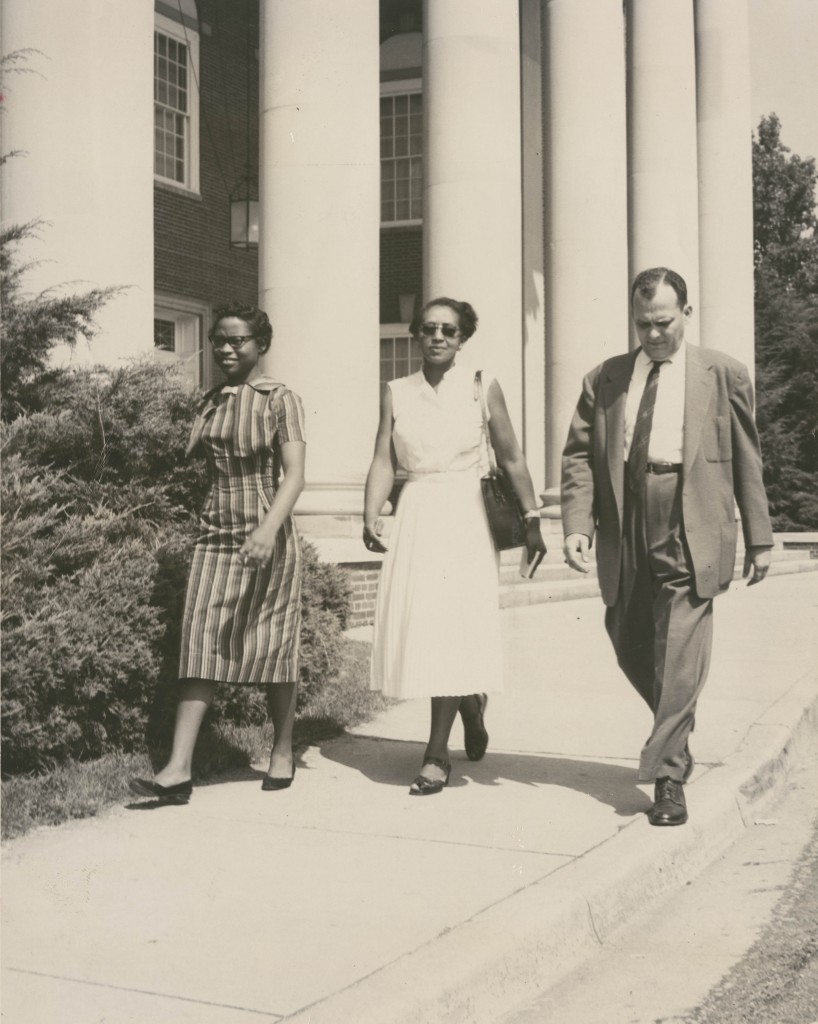 Velma Hopkins
Velma Hopkins
Velma Hopkins helped mobilize 10,000 workers into the streets of Winston-Salem, NC, as part of an attempt to bring unions to R.J. Reynolds Tobacco Company. The union, Local 22 of the Food, Tobacco, Agricultural and Allied Workers of America-CIO, was integrated and led primarily by African American women. They pushed the boundaries of economic, racial and gender equality. In the 1940s, they organized a labor campaign and a strike for better working conditions, pay, and equal rights under the law. It was the only time in the history of Reynolds Tobacco that it had a union. Before Local 22 faced set-backs from red-baiting and the power of Reynolds’ anti-unionism, it gained national attention for its vision of an equal society. This vision garnered the scrutiny of powerful enemies such as Richard Nixon and captured the attention of allies such as actor Paul Robeson and songwriter Woody Guthrie. While it represented the workers, the union influenced a generation of civil rights activists.
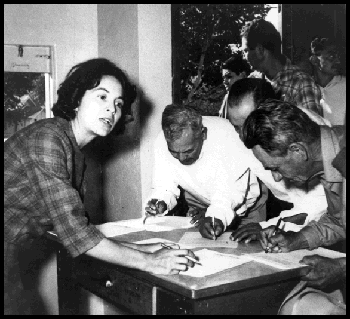 Dolores Huerta
Dolores Huerta
Before becoming a labor organizer, Dolores Huerta was a grammar school teacher, but soon quit after becoming distraught at the sight of children coming to school hungry or without proper clothing. “I couldn’t stand seeing kids come to class hungry and needing shoes. I thought I could do more by organizing farm workers than by trying to teach their hungry children.” In 1955, Huerta launched her career in labor organizing by helping Fred Ross train organizers in Stockton, California, and five years later, founded the Agricultural Workers Association before organizing the United Farm Workers with Cesar Chavez in 1962. Some of her early victories included lobbying for voting rights for Mexican Americans as well as for the right of every American to take the written driver’s test in their native language. A champion of labor rights, women’s rights, racial equality and other civil rights causes, Huerta remains an unrelenting figure in the farm workers’ movement.
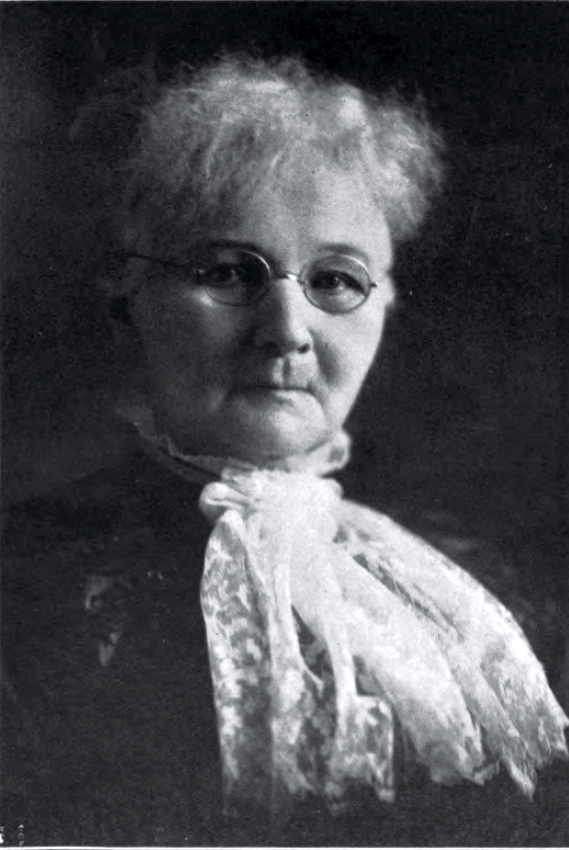 Mother Jones
Mother Jones
Marry Harris “Mother” Jones made it her mission to stand up for the rights of the children who worked in factories and mills under horrible conditions in the early 1900’s. “I asked the newspaper men why they didn’t publish the facts about child labor in Pennsylvania. They said they couldn’t because the mill owners had stock in the papers.” “Well, I’ve got stock in these little children,” said I,” and I’ll arrange a little publicity.” On July 7, 1903, Jones began the “March of the Mill Children” from Philadelphia to President Theodore Roosevelt’s Long Island summer home in Oyster Bay, NY, to publicize the harsh conditions of child labor and to demand a 55-hour work-week. During this march she delivered her famed “The Wail of the Children” speech, even though Roosevelt refused to see them.
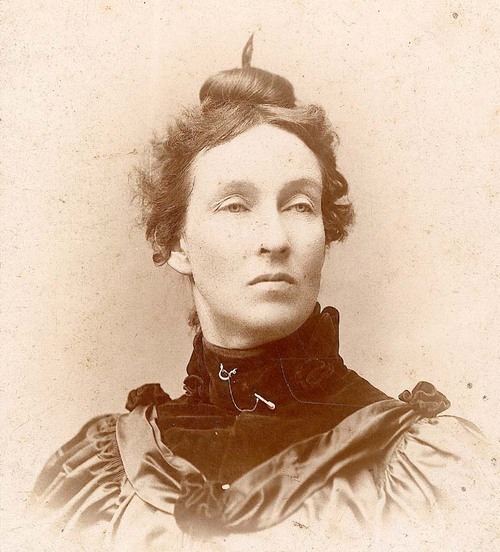 Mary Lease
Mary Lease
“Wall Street owns the country. It is no longer a government of the people, by the people, and for the people, but a government of Wall Street, by Wall Street, and for Wall Street.” These words, which eerily echo some sentiments today, were spoken more than 120 years ago by Mary Lease, a powerful voice of the agrarian crusade and the best-known orator of the era, first gaining national attention battling Wall Street during the 1890 Populist campaign. As a spokesperson for the “people’s party,” she hoped that by appealing directly to the heart and soul of the nation’s farmers, she could motivate them to political action to protect their own interests not only in Kansas but throughout the United States. “You may call me an anarchist, a socialist, or a communist, I care not, but I hold to the theory that if one man as not enough to eat three times a day and another man has $25,000,000, that last man has something that belongs to the first.” Mary spent most of her life speaking out in favor of social justice causes including women’s suffrage and temperance, and her work reflected the multifaceted nature of late nineteenth-century politics in the United States. Many female leaders today, such as Elizabeth Warren, still fight against Wall Street and the 1% as inequality has reached exorbitant levels.
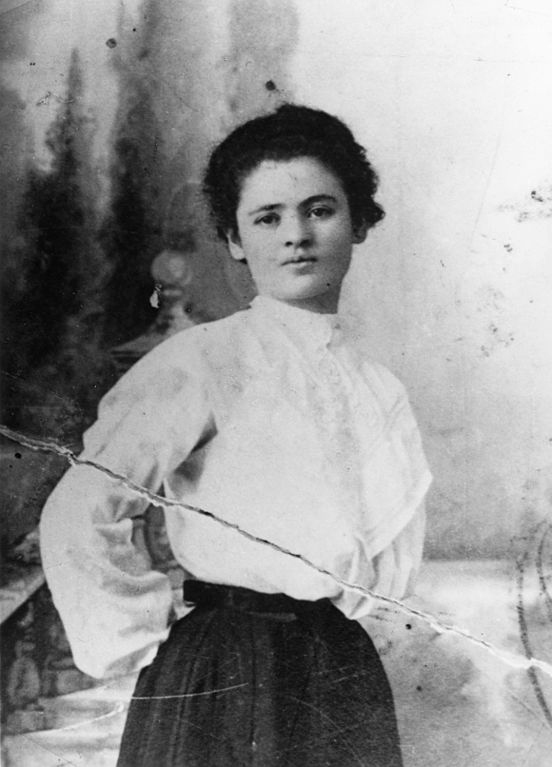 Clara Lemlich
Clara Lemlich
“I have listened to all the speakers, and I have no further patience for talk. I am a working girl, one of those striking against intolerable conditions. I am tired of listening to speakers who talk in generalities. What we are here for is to decide whether or not to strike. I make a motion that we go out in a general strike.” These were the words of Clara Lemlich, a firebrand who led several strikes of shirtwaist makers and challenged the mostly male leadership of the union to organize women garment workers. With support from the National Women’s Trade Union League (NWTUL) in 1909 she lead the New York shirtwaist strike, also known as the “Uprising of the 20,000”. It was the largest strike of women at that point in U.S. history. The strike was followed a year later by the Triangle Shirtwaist Factory Fire that exposed the continued plight of immigrant women working in dangerous and difficult conditions.
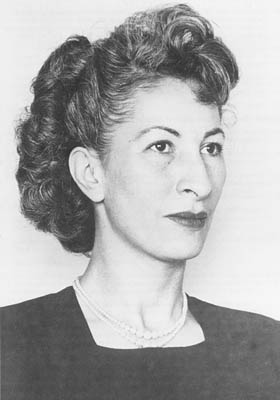 Luisa Moreno
Luisa Moreno
Luisa Moreno, a Guatemalan immigrant, first got involved in labor activism in 1930 at in Zelgreen’s Cafeteria in New York City, when she and her co-worker protested the employer’s exploitation of its workers with long hours, constant sexual harassment, and the threat, should anyone object, of dismissal. Hearing that workers would picket the cafeteria, police formed a line on the sidewalk that allowed customers to pass through. Luisa, in a fur collar coat, strolled through the cordon of policemen as if she was going to enter the cafeteria. When she was directly in front of the door she pulled a picket sign from under her coat and thrust it in plain view, yelling, “Strike!” Two burly policemen grabbed her by the elbows. They lifted her off the sidewalk and hustled her into the entrance way of a nearby building. She came out with her face bleeding and considered herself fortunate that she was not disfigured. Moreno spent the next 20 years organizing workers across the country. Her story serves as a reminder of just how dangerous the conditions were in those days to simply make one’s voice heard, but her bravery helped change those conditions for the better.
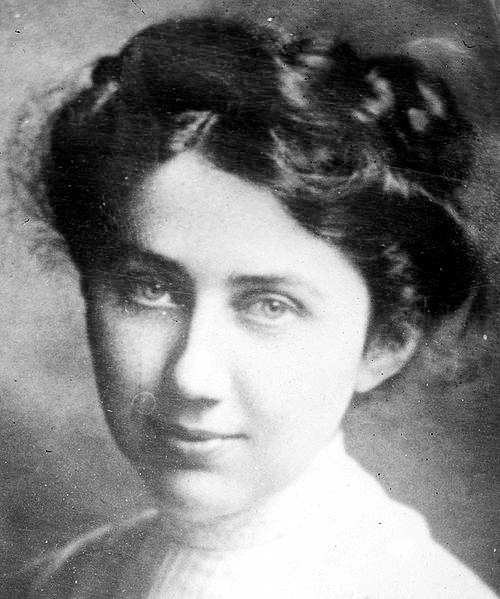 Agnes Nestor
Agnes Nestor
“Any new method which the company sought to put into effect and disturb our work routine seemed to inflame the deep indignation already burning inside us. Thus, when a procedure was suggested for subdividing our work, so that each operator would do a smaller part of each glove, and thus perhaps increase the overall production—but also increase the monotony of the work, and perhaps also decrease our rate of pay—we began to think of fighting back.” This reminiscence by Nestor described how the oppressive conditions of the glove factory pushed her to take a leading role in a successful strike of female glove workers in 1898. Soon she became president of her glove workers local and later a leader of the International Glove Workers Union. She also took a leading role in the Women’s Trade Union League, serving as president of the Chicago branch from 1913 to 1948.
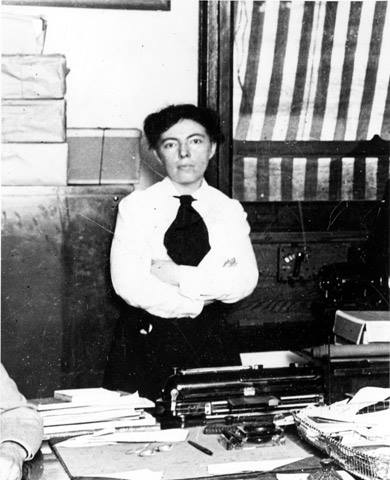 Pauline Newman
Pauline Newman
Pauline Newman, a Russian immigrant, began working at the Triangle Shirtwaist Factory in 1903 when she was thirteen years old. Finding that many of her co-workers could not read, she organized an evening study group where they also discussed labor issues and politics. Newman was active in the shirtwaist strike and the Women’s Trade Union League. She became a union organizer for the International Ladies’ Garment Workers’ Union (ILGWU) and director of the ILGWU Health Center. “All we knew was the bitter fact that after working 70 or 80 hours in a seven-day week, we did not earn enough to keep body and soul together,” she said.
Lucy Parsons
On May 1, 1886, Lucy Parsons helped launched the world’s first May Day and the demand for the eight-hour work day. Along with her husband, anarchist and activist Albert Parsons, and their two children, they led 80,000 working people down the Chicago streets and more than 100,000 also marched in other U.S. cities. A new international holiday was born. Parsons went on to help found the International Workers of the World, continued to give speeches, and worked tirelessly for equality throughout the rest of her life until her death in 1942.
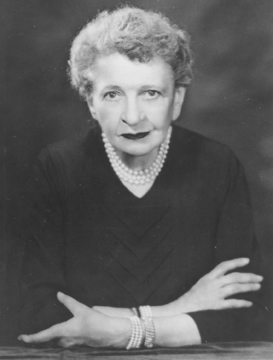 Frances Perkins
Frances Perkins
On March 4, 1933, Frances Perkins became the U.S. Secretary of Labor from 1933 to 1945, and the first woman appointed to the U.S. Cabinet. Having personally witnessed workers jump to their death during the Triangle Shirtwaist fire, Perkins promoted and helped passed strong labor laws to try to prevent such atrocities from ever occurring again.
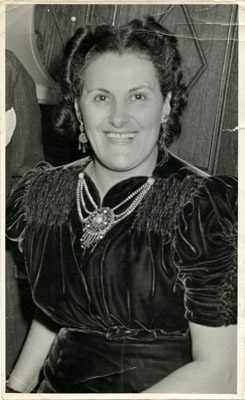 Rose Pesotta
Rose Pesotta
When Rose Pesotta arrived in Los Angeles in 1933 to organize employees in the garment industry, the workforce of which was 75% Latina, the local leadership of the International Ladies Garment Workers Union (ILGWU), consisting of mostly white men, had no interest in organizing female dressmakers, feeling that most would either leave the industry to raise their families or shouldn’t be working in the first place. On October 12, 1933, a month after Rose Pesotta arrived, 4,000 workers walked off the job and went on strike. Their demands included union recognition, 35-hour work weeks, being paid the minimum wage, no take home work or time card regulation, and for disputes to be handled through arbitration. The strike ended on Nov. 6 with mixed results, but the workers gained a 35-hour workweek and received the minimum wage. Although not a complete victory, the message sent was a powerful one. What Rose Pesotta knew all along was now clear to the garment bosses and her male union counterparts; women, specifically women of color, should not be discounted. When it came to the demands of dignity and respect, these workers would not be ignored.
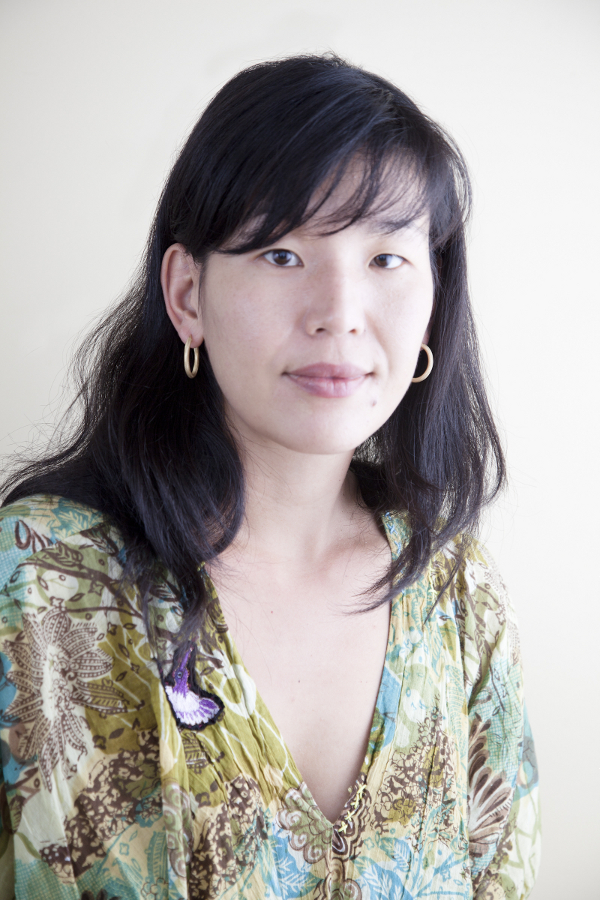 Ai-Jen Poo
Ai-Jen Poo
When Poo started organizing domestic workers in 2000, many thought she was taking on an impossible task. Domestic workers were too dispersed–spread out over too many homes. Even Poo had described the world of domestic work as the “Wild West.” Poo’s first big breakthrough with the National Domestic Workers Alliance (NDWA) happened on July 1, 2010, when the New York state legislature passed the Domestic Workers Bill of Rights. The bill legitimized domestic workers and gave them the same lawful rights as any other employee, such as vacation time and overtime pay. The bill was considered a major victory, and the NDWA expanded operations to include 17 cities and 11 states.
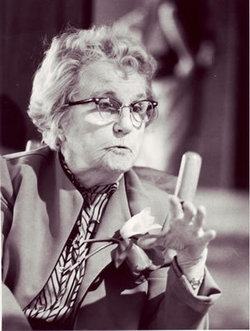 Florence Reece
Florence Reece
Florence Reece was an activist, poet, and songwriter. She was the wife of one of the strikers and union organizers, Sam Reece, in the Harlan County miners strike in Kentucky. In an attempt to intimidate her family, the sheriff and company guards shot at their house while Reece and her children were inside (Sam had been warned they were coming and escaped). During the attack, she wrote the lyrics to Which Side Are You On?, a song that would become a popular ballad of the labor movement.
Song Lyrics
CHORUS: Which side are you on? (4x)
My daddy was a miner/And I’m a miner’s son/And I’ll stick with the union/‘Til every battle’s won [Chorus]
They say in Harlan County/There are no neutrals there/You’ll either be a union man/Or a thug for JH Blair [Chorus]
Oh workers can you stand it?/Oh tell me how you can/Will you be a lousy scab/Or will you be a man? [Chorus]
Don’t scab for the bosses/Don’t listen to their lies/Us poor folks haven’t got a chance/Unless we organize [Chorus]
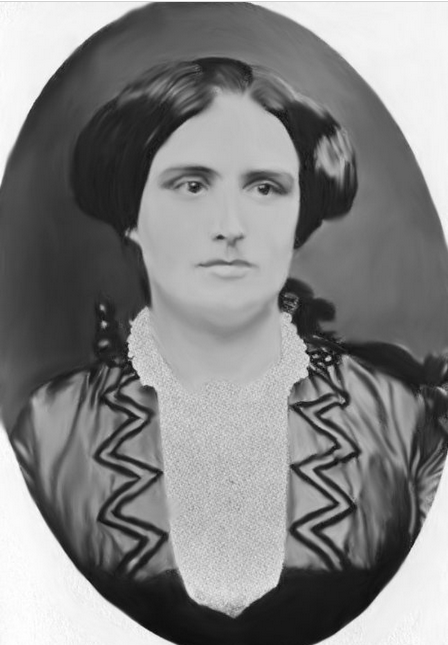 Harriet Hanson Robinson
Harriet Hanson Robinson
At the age of 10, Harriet Hanson Robinson got a job in textile Mills of Lowell, Massachusetts to help support her family. When mill owners dropped wages and sped up the pace of work, Harriet and others participated in the 1836 Lowell Mill Strike. Later as an adult, Harriet became an activist for women’s suffrage and would recount her mill work experience in Loom and Spindle or Life Among the Early Mill Girls. In her book, Harriet concludes: “Such is the brief story of the life of every-day working-girls; such as it was then, so it might be to-day. Undoubtedly there might have been another side to this picture, but I give the side I knew best–the bright side!”
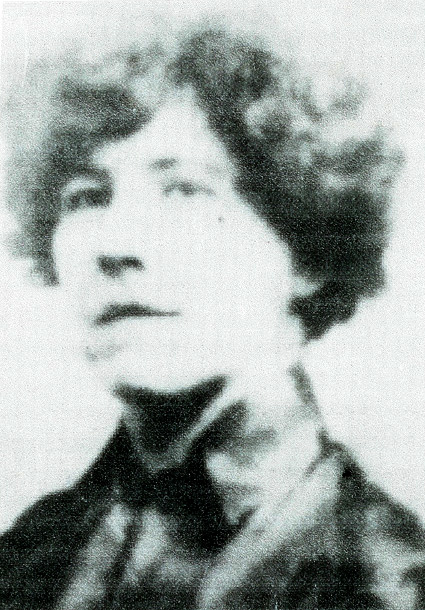 Fannie Sellins
Fannie Sellins
Fannie Sellins was known as an exceptional organizer that also made her “a thorn in the side of the Allegheny Valley coal operators.” The operators openly threatened to “get her.” After being an organizer in St. Louis for the United Garment Workers local and in the West Virginia coal fields, in 1916 Sellins moved to Pennsylvania, where her work with the miners’ wives proved to be an effective way to organize workers across ethnic barriers. She also recruited black workers, who originally came north as strikebreakers, into the United Mine Workers America. During a tense confrontation between townspeople and armed company guards outside the Allegheny Coal and Coke company mine in Brackenridge on August 26, 1919, Fannie Sellins and miner Joseph Strzelecki were brutally gunned down. A coroner’s jury and a trial in 1923 ended in the acquittal of two men accused of her murder. She is remembered for her perseverance and bravery.
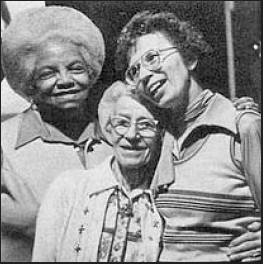 Vicky Starr
Vicky Starr
“When I look back now, I really think we had a lot of guts. But I didn’t even stop to think about it at the time. It was just something that had to be done. We had a goal. That’s what we felt had to be done, and we did it,” said “Stella Nowicki”, the assumed name of Vicki Starr, an activist who participated in the campaign to organize unions in the meatpacking factories of Chicago in the 1930’s and ‘40s.
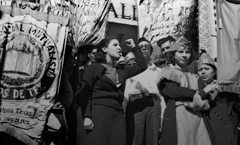 Emma Tenayuca
Emma Tenayuca
“I was arrested a number of times. I never thought in terms of fear. I thought in terms of justice,” said Emma Tenayuca, born in San Antonio, Texas on Dec. 21, 1916. Later, she would become to be known as “La Pasionaria de Texas” through her work as an educator, speaker, and labor organizer. From 1934–1948, she supported almost every strike in the city, writing leaflets, visiting homes of strikers, and joining them on picket lines. She joined the Communist Party and the Workers Alliance (WA) in 1936. Tenayuca and WA demanded that Mexican workers could strike without fear of deportation or a minimum wage law. In 1938 she was unanimously elected strike leader of 12,000 pecan shellers. Due to anti-Mexican, anti-Communist, and anti-union hysteria Tenayuca fled San Antonio for her safety but later returned as a teacher.
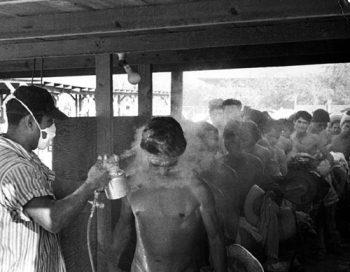 Carmelita Torres
Carmelita Torres
On Jan. 28, 1917, 17-year-old Carmelita Torres led the Bath Riots at the Juarez/El Paso border, refusing the toxic “bath” imposed on all workers crossing the border. Here is what the El Paso Times reported the next day: “When refused permission to enter El Paso without complying with the regulations the women collected in an angry crowd at the center of the bridge. By 8 o’clock the throng, consisting in large part of servant girls employed in El Paso, had grown until it packed the bridge half way across. “Led by Carmelita Torres, an auburn-haired young woman of 17, they kept up a continuous volley of language aimed at the immigration and health officers, civilians, sentries and any other visible American.”
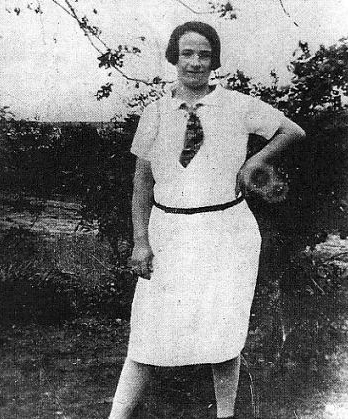 Ella Mae Wiggins
Ella Mae Wiggins
Ella Mae Wiggins was an organizer, speaker, and balladeer, known for expressed her faith in the union, the only organized force she had encountered that promised her a better life. On Sept. 14, 1929, during the Loray Mill strike in Gastonia, NC, Textile Workers Union members were ambushed by local vigilantes and a sheriff’s deputy. The vigilantes and deputy forced Ella Mae Wiggins’ pickup truck off the road, and murdered the 29 year-old mother of nine. Though there were 50 witnesses during the assault and five of the attackers were arrested, all were acquitted of her murder. After her death, the AFL-CIO expanded Wiggins’ grave marker in 1979, to include the phrase, “She died carrying the torch of social justice.” Also a song-writer, her best-known song, A Mill Mother’s Lament, was recorded by Pete Seeger, among others.
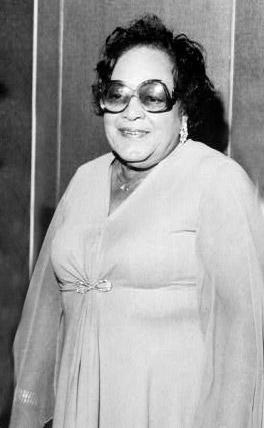 Sue Cowan Williams
Sue Cowan Williams
Sue Cowan Williams represented African-American teachers in the Little Rock School District as the plaintiff in the case challenging the rate of salaries allotted to teachers in the district based solely on skin color. The suit, Morris v. Williams, was filed on Feb. 28, 1942, and followed a March 1941 petition filed with the Little Rock School Board requesting equalization of salaries between black and white teachers. She lost the case, but then won in a 1943 appeal.
March 1, 2016
Local 400 Member “Adopts” Entire Classroom
[aesop_quote type=”pull” background=”#282828″ text=”#ffffff” width=”30%” align=”right” size=”2″ quote=”It’s great being a Local 400 member. It helps me on the job having my union standing behind me. And that enables me—and many of my Local 400 brothers and sisters—to do what we can for our community.” cite=”William Iveym, UFCW Local 400″ parallax=”on” direction=”left”]
The following was originally posted by Local 400:

For ten years, William Ivey’s organization has provided every second grader at Capron Elementary School with a backpack filled with school supplies.
When William Ivey says, “We try to give back to the community,” he’s not kidding. A UFCW Local 400 member working as a sanitation specialist at Boar’s Head in Jarratt, Va., for the past 12 years, Billy goes far above and beyond the call of duty to support not only his Local 400 brothers and sisters, but his neighbors, too.
Together with his Local 400 colleagues Emerson Tennessee and Andrew Blunt, his brother Leon and other friends, Billy founded the Community Fellowship of Men, an organization that has “adopted” the second grade class at Capron Elementary School in Capron, Va., as their own. The Community Fellowship hosts an annual cookout every October, which raises funds to provide every second grader with a backpack filled with school supplies. The 2015 cookout marked the 10th year of this great event, which includes inflatable bounce houses for the children, and a car show for the adults.
“We provide the sausages and the meats and we man the grills,” Billy said. “It’s a real family gathering. People look forward to it every year. And the children love their backpacks.”
[aesop_quote type=”block” background=”#084e93″ text=”#ffffff” width=”content” align=”center” size=”2″ quote=”It’s a real family gathering. People look forward to it every year. And the children love their backpacks.” parallax=”on” direction=”left”]
Community Fellowship members support the students in other ways, too, volunteering in the school, passing out healthy snacks, and helping with athletic contests, for example.
And it’s not just children who benefit. The Community Fellowship assists widows in Southampton County, with members mowing the grass when it’s hot outside and helping out around the house as needed.
Billy’s community spirit is also seen in his involvement with his church, Pleasant Plains Baptist, located in his hometown of Drewryville, Va. Billy is a member of the church’s Ministry of Comfort and serves on the Usher Board. “The church is very important to me,” Billy said. “It helps me be a better person.”
Billy’s exemplary leadership and activism reflect the values of his union. “It’s great being a Local 400 member,” he said. “It helps me on the job having my union standing behind me. And that enables me—and many of my Local 400 brothers and sisters—to do what we can for our community.”
February 29, 2016
Black History Month Member Profile: Hidi Frazier of Local 1996
 As the UFCW continues to honor Black History Month and reinforces its commitment to racial and economic justice, we’re asking members why these issues matter to them. Hidi Frazier of Local 1996 has worked for Kroger in Georgia for 15 years. As a Deli Manager, she oversees both the deli and bakery, trains new associates, takes inventory, and makes orders.
As the UFCW continues to honor Black History Month and reinforces its commitment to racial and economic justice, we’re asking members why these issues matter to them. Hidi Frazier of Local 1996 has worked for Kroger in Georgia for 15 years. As a Deli Manager, she oversees both the deli and bakery, trains new associates, takes inventory, and makes orders.
[aesop_quote type=”pull” background=”#282828″ text=”#ffffff” width=”30%” align=”right” size=”2″ quote=”A lot of issues affects us all in one way or another. We all want fair wages, good health benefits and good pensions. We all have to continue to stand together and keep working families strong.” cite=”Hidi Frazier, UFCW Local 1996″ parallax=”on” direction=”left”]
Hidi says that to her, “Black History Month … is about honoring and remembering those who made a difference and paved the way for people like me. Without their sacrifice and determination to want and fight for change, I wouldn’t be where I am today.”
Hidi first became active in her union seven years ago when a fellow member asked if she’d like to volunteer with phone banking to ask fellow members to vote and help get labor-friendly candidates elected in her state who will make a difference for working families. She agreed, and has been an active member ever since.
During her time volunteering, Hidi was inspired by Mary Lou Romaine-Waymer, who leads and organizes the phone banks and other political activities for the local: “She does a great job. Mary Lou Wagner is a leader for UFCW. She keeps the members well informed in local and state politics. Mary Lou reminds us that these races are the most important because they affect our everyday lives as citizens of Georgia.”
After seeing first-hand just how much of a difference being part of union family makes in her life, Hidi wants to spread the word. As a manager, she’s in a unique position to help explain to her fellow coworkers what the union is all about. “I would advise everyone, not just African Americans, to become involved. A lot of issues affects us all in one way or another. We all want fair wages, good health benefits and good pensions. We all have to continue to stand together and keep working families strong,” she says
[aesop_quote type=”pull” background=”#282828″ text=”#ffffff” width=”30%” align=”left” size=”2″ quote=”When union members, community members, and other working people come together, we are more powerful.” parallax=”on” direction=”left”]
Hidi also stresses the importance of solidarity. “We have the AFL-CIO, where all the unions come together to keep the fight going for working families,” she says. “When union members, community members, and other working people come together, we are more powerful. Labor and civil rights intersect by continuing the fight on issues that affect working families. We will continue to rally and lobby together to make sure that we all have the same opportunities as everyone else. We have to have more training and workshops so that minorities can compete in the workplace. Lastly, we have to make our unions stronger than ever.”



